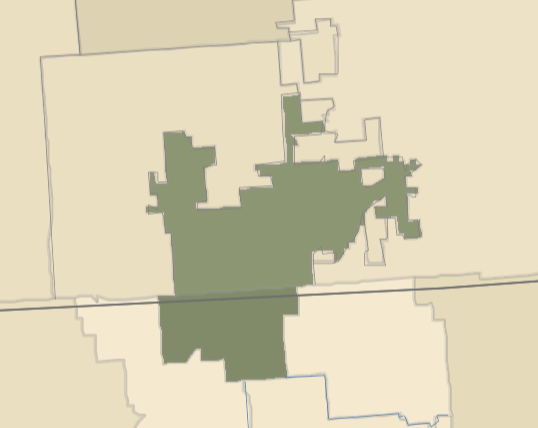The despair of $3.7 million
I talked with a school district official from Beloit, Wisconsin recently and in preparation for our call I put together some notes. I found an enraging situation there, among some other interesting tensions, while looking into the budget crisis.
The main thing that makes me mad is a number: $3.7 million. The number occurs twice in two very different, but related places.
When I listened to a recent budget and finance meeting, I was struck by a few things, and one of them was the tone around cuts.
A subcommittee was charged with figuring out where to make $3.7 million of cuts to the budget due to a nearly $10 million shortfall this year. I’ll get into the context around that shortfall in a moment, but the representative from this subcommittee, a middle-aged white woman, kept saying the word “deeper”: we have to go deeper, we have to cut deeper, why didn’t the district go deeper in its cuts, etc.
There’s an aggressive tension in her voice, a kind of unconscious sad sadism, an apprehensive relishing of talk about budget cutting and the school district. She’s importuning the district to cut more, asking why the district didn’t cut more in the first place, and holds the space at the podium as a kind of reaper.
And indeed, they’re going to cut. As local journalism reports: “Among the cuts proposed Tuesday by an ad hoc committee formed this summer are eight school psychologists and counselors for a savings of $600,000, seven assistant principals across the district for a savings of more than $750,000, and nine staffers at the Kolak Education Center for a savings of $1.44 million.”
This is painful. In reaction to the subcommittee’s report, the superintendent noted for the board and the community that Beloit has been cutting for years, but there’s never conversation about how to get out of this cycle.
I’ll note that Dr. Garrison, the superintendent, is Black, while nearly everyone else in the room—the board, subcommittee, finance officials—are white. Beloit itself is a diverse district serving 67.24% students of color and a poverty rate of 22.36% according to New America’s “Cross the Line” map. By the way, look at how Beloit (in green, denoting higher poverty) relates to Beloit-Turner School District (in tan, denoting lower poverty). There’s a racial capitalist story there.

Garrison asks, “why do we have to keep doing this?” in a somewhat despairing manner. When I looked into the numbers I found some stuff that speaks to his anger.
In audited financial statements, I found that the district’s total general obligation debt is $3.7 million. Literally the same amount that the subcommittee in charge of cutting had to find to cut out of the budget. I’m just so mad about this! C’mon!
Not only that, but the district finance official who gave the preface to the budget meeting said in a kind of quick and technical way, as though it were nothing, that the district made an $8 million pre-payment on some debt in the last cycle. If they hadn’t needed to do that, nearly all their budget crisis would’ve been taken care of.
But there are a slew of other ungenerous, punitive policies surrounding this situation that I’d like to ask about, including how Wisconsin limits districts’ ability to tax viz. inflation.
The state does this thing where if districts need money beyond a certain threshold, they need to ask the community to vote in a referendum. It’s called revenue limits, put into law in 1993. Here’s the formula.
At the same time, the state doesn’t take inflation into account when it makes these calculations on revenue limits, which makes the situation even worse. One budget expert uses La Crosse as an example of how this hurts districts.
In 2009, the state Legislature decoupled per-pupil revenue limits from inflation. Without matching inflation, school districts have been slashing their budgets for years.” This can have big impacts, like in La Crosse: “Engel said tying the revenue limits to inflation was a great model, and the gap between inflationary increases and what they are provided is now over $3,000 per student. That represents $18 million in lost revenue over the last 16 years. This significantly affects the district’s ability to operate its schools, he said.
Beloit lost a tax limit referendum this year, along with a bunch of districts trying to increase their revenues, which means all these budget cuts.
The revenue limits law basically protects taxpayers and property owners by saying the school district can’t tax them too much. In the case of Beloit, it looks like the rates for property taxes were cut dramatically for schools in 2022 as well. They were basically halved! That would certainly hurt revenues even further. The whole town went from taxing at 27 to taxing at 16, and schools went from 11 to 5.5. Less and less money coming in.
But that revenue limit law, decoupled from inflation, also protects bondholders: the district doesn’t need a referendum to pay debt service. They can tax all they want to pay back debt. “This limitation does not apply to revenues needed for the payment of any general obligation debt service (including refinanced debt) authorized” by the district.
So property owners and bondholders are protected (and we can guess their racial demographics), while all the diverse working class kids in the district get their resources taken away. They won’t have eight school counselors now. Great system we have here! I can understand why the superintendent is in such despair, and I’ve got nothing but solidarity with him and the people of that district.